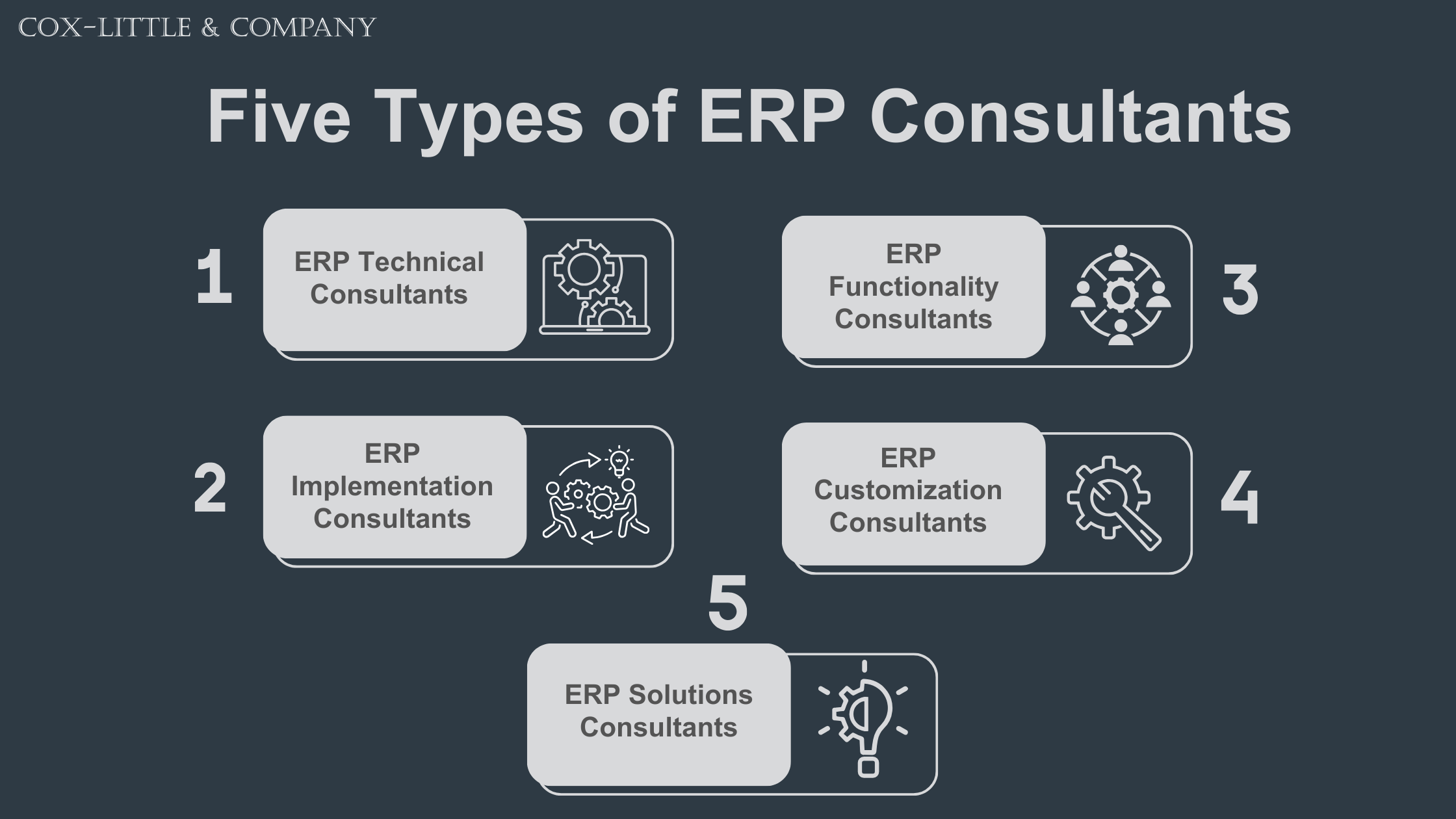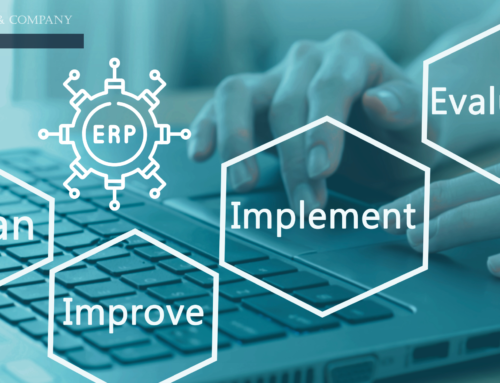
What do ERP Consultants do?
Every ERP user knows that ERP implementation can make or break an organization’s success. ERP software solutions continue to evolve, and the challenges and benefits surrounding their implementations vary due to several factors that are reactive to changing industry and business dynamics. We have elaborated on the real-world benefits of ERP solutions across industries and discussed many game-changing ERP features to outshine the competition. We have discovered a direct correlation between successful ERP projects and ERP consultants throughout our use cases. As we close the year, we are motivated to share how our ERP staffing solutions helped overcome the most demanding business challenges. For the next year, we hope your ERP vision aligns with the business objectives and your time and resources devoted to ERP projects will be fruitful with the help of ERP specialists who already know the drill.
In this two-part blog, we will use unveil ERP consultants’ significance in paving a path for successful ERP projects.
Let’s assume you are a booming business ahead of the recent digital transformations and recognize a need to upgrade to a new ERP platform. The new ERP software (preferably cloud-based ERP) implementation plan gets a sign-off from the leaders and top-line technology decision-makers. That means managers and executives from different departments compile their immediate needs and expectations regarding benefits, features, efficiencies, costs, and changes from the ERP project. Often, leaders and executives are too busy to get involved deeply in the intricate details of these projects, and employees or end-users may not always know how to articulate their technological requirements. Internal tech and IT teams can share a high-level overview of the ERP project requirements. However, the concepts within the realm of ERP are so vast that they require a specific ERP advisory team or consultant with well-defined roles as a ‘go-to ERP whiz’ to help save some precious time and money while bootstrapping the ERP system.
Many large to medium-sized organizations choose ERP consultants to provide end-to-end, dedicated support and insights on ERP projects. Several types of ERP consultants have experience and certifications across ERP functions, solution implementation, ERP customization, and technical support. They play a massive role in pivoting ERP projects by unlocking the right benefit at the right time to the right team with minimal disruption to the teams and existing workflows. To help you understand each of their roles better to pick the right ERP consultant for your business, below is a brief rundown of their scope of tasks:
Five Types of ERP Consultants

- ERP Technical Consultants: These consultants have a strong background and understanding of the technical aspects of an ERP solution that may be unique to the industry, or the type of business. They can address any issue or errors in the ERP environment and connect business systems or applications at both hardware and software levels. The technical ERP consultants not only fix and help mitigate any issues but also actively track the performance of the ERP software in a continuum.
- ERP Functionality Consultants: The role of an ERP functionality consultant is self-explanatory. Their job is to match the business needs with the right ERP platform. They refer to the years’ worth of business data and the future to suggest the most appropriate solution with the resilience and capability to adjust to any change, customization, personalization, scalability, and upgrade requirements.
- ERP Implementation Consultants: Did you know the average budget per user for ERP implementation is more than $8,000? It can take anywhere from a month to more than a year to implement an ERP platform. An ERP implementation consultant manages the end-to-end ERP implementation journey, from analyzing needs, business processes, and workflows to selecting the ERP platform, data migration, system configuration, testing, and deployment to seamlessly resolving every roadblock to implementation. Their core expertise is in helping any business deploy the ERP platform within time and budget and change or upgrade bandwidth.
- ERP Customization Consultants: ERP customizations are intensive coding changes to ensure the ERP solution is tweaked to meet business requirements. If done correctly, ERP customizations can give businesses a distinctive edge, but the processes surrounding this task are complex. It requires extensive coding and development knowledge, an understanding of various types of ERP customizations, the use of technologies like abstraction layers and testing frameworks, and data validations to prove the long-term impacts of customization. An ERP customization consultant is adept in the ERP customization process and can identify the required functionality for the business to make necessary tweaks and adjustments to the software like adding automation capabilities, custom data reporting and dashboards, security controls, event or process tracking, advanced reporting and analytics, access management, building custom workflows, etc. Customization experts know how to elevate the user experience of the ERP systems and leverage its flexibility. Customizations are not easy to reverse and involve many risks of downtime, coding errors, and system incompatibility. Therefore, an ERP customization is necessary to accomplish the right platform customization.
- ERP Solution Consultants: The finance and accounting modules of ERP systems are leveraged with the knowledge and understanding of an ERP solution consultant. These consultants are well acquainted with the finance, accounting, and auditing domains. They can use their insights to make the most of the modules to elevate finance and accounting departments with the right capabilities and features. Large to small businesses in the banking, financial services, and insurance (BFSI) industries or any firm with complex financial and accounting needs can seek consultations from ERP finance or ERP accounting experts.
Five Responsibilities of Proficient ERP Consultants
Your business now has a clear vision of the types of ERP consultants and how each, in their own capacity, is committed to increasing ERP project success. Let us move to understanding the typical responsibilities of ERP consultants:
- ERP Certification and Experience: Plenty of ERP platform vendors in the market promise many things. An ERP consultant with education and training in ERP platforms, different providers, and exclusive knowledge of a specific ERP software can be pre-vetted by industry-recognized certifications. Besides valid certifications and credentials, the consultants typically invest time in gaining practical and hands-on experience working with ERP projects. From implementation, customization, system configuration, change management, legacy to Cloud ERP migration, etc. It doesn’t matter what specialization they choose; your firm must know the difference between regular IT personnel and reliable ERP consultants.
- Matching Business Requirements with the Right Solution: An ERP consultant differs from an internal IT decision-maker, software engineer, developer, product manager, or scrum master. A consultant has hands-on experience analyzing what a business requires and finding what ERP software best matches those needs. That means conducting a SWOT analysis to define the most suitable path to ERP implementation unique to the industry, workflows, processes, user expectations, and budget plans.
- Understanding Existing Infrastructure and System Framework: Industries like manufacturing and distribution use complex enterprise technology platforms that require robust integrations with ERP platforms. An ERP consultant must go over the existing tech infrastructure, bandwidth, and business systems and applications to create an integrated ERP ecosystem within an organization. For example, suppose your business is looking for an upgrade from legacy to cloud ERP. In that case, a consultant must assess if it is easy to migrate current applications, data and hardware, and software infrastructure to the cloud environment. They should know which migration option works best and understand several other data and application interoperability factors. They should also plan for contingencies and perform checks to predict how different applications and systems function in the new environment.
- On Going Support and Training: It’s never a quick jump into the ERP environment. Moreover, ERP investments are long-term projects that take slow but calculated steps. Only about 27% of employees use the new ERP software, according to a research. User training on custom ERP software features, capabilities, and functions helps end-users or employees warm up to the new software. User adoption rates can improve with effective training. Ongoing support for troubleshooting and managing unanticipated changes and technical or cybersecurity threats helps businesses with reliable and trusted advisory from an ERP consultant. These consultants offer support throughout the project lifecycle, data migration, system analysis, module integration, and more.
- Integrating Best Practices: A capable ERP consultant lives by the philosophy of defining and documenting ERP project journeys and methods. The clearly defined guidelines created by experienced consultants that consider all the requirements help ease the users’ ERP journey by serving as standard best practices. It helps drive informed decision-making in the organization and avoids unwanted disruptions, costs, and investments.
ERP Consultants Help Elevate Value-generation from ERP Systems
Many ERP vendors with cutting-edge capabilities packed into one suite exist to empower businesses to ace their profitability and performance priorities. Even with the most user-friendly ERP solutions, some organizations fail to create value without the right ERP insights and a structural ERP project plan. Mere solution implementation is not a magic pill. From the beginning, COX-LITTLE & COMPANY has recognized the role of a dedicated consultant in ERP projects. Our ERP staffing solutions have been a strong foundation for propelling millions and billions of dollars worth of ERP projects for many customers across industries.
At COX-LITTLE, our ERP consultants are against risky and uninformed judgments when making ERP investments. Let us assemble the right ERP talent who can readily run and be involved in ERP projects for your business.
Also, stay tuned for the next part of the blog!
In the meantime, feel free to talk to our consultants to transform your business with ERP solutions.





Leave A Comment